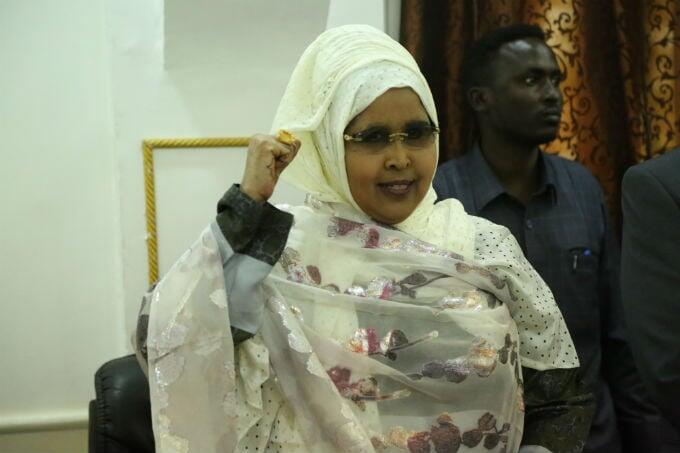The first lady of the Federal Government of Somalia Her Excellency Zahra Omar Hassan has pledged to support the movement to end fistula in the country within a generation.
The first lady expressed her support during the commemoration of the International Day to end Obstetric Fistula on May 23 in Mogadishu. She indicated that she was going to support the Ministry of the Health to advocate for ongoing intervention in saving the lives of women and restoring the hope of Somali women with obstetric fistula.
An estimated 2 million women and girls are living with obstetric fistula, a hole or tear between the birth canal and the rectum or bladder that results in chronic incontinence, dangerous infections and, due to the stigma that surrounds it in many communities, a lifetime of discrimination. Sufferers often endure depression, social isolation and deepening poverty. Many women live with the condition for years – or even decades – because they cannot afford to obtain treatment.
And despite the fact that the condition is almost entirely preventable and treatable, between 50,000 and 100,000 women and girls continue to develop the injury during childbirth each year. Its persistence is a sign that health systems are failing to meet women’s needs.
In 2003, UNFPA and its partners launched the Campaign to End Fistula, and today it is operating in 50 countries. Through the campaign, UNFPA has directly supported more than 70,000 surgical repairs for women and girls, and partner agencies have supported thousands more.
In addition, UNFPA provides medical supplies, training and funds for fistula prevention, treatment and social reintegration programmes. Additionally, UNFPA strengthens maternal health and emergency obstetric services to prevent this injury from occurring in the first place.
This International Day to End Obstetric Fistula, 23 May, the theme was “End fistula within a generation."
The commemorative event in Mogadishu brought together fistula survivors, government officials, parliamentarians, UN agencies, civil society and members of the general public.


